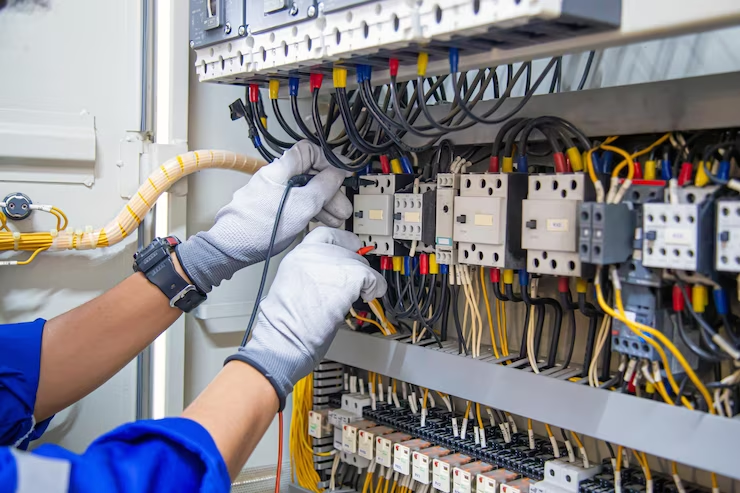Technical services in facility management encompass a range of specialized activities focused on maintaining and optimizing the physical infrastructure of a facility. These services are essential for ensuring the smooth operation and longevity of a building or property. Key aspects of technical services in facility management include:
Technical Services Play A Crucial Role In Maintaining The Functionality, Safety, And Efficiency Of A Facility, Contributing To A Positive And Productive Environment For Occupants While Optimizing Operational Costs.
- Maintenance and Repairs:
1.Regular inspection and upkeep of building systems such as HVAC, plumbing, electrical, and other essential equipment.
2.Timely repairs to address any malfunctions or issues, minimizing downtime and ensuring the safety of occupants.
- Asset Management:
1.Tracking and managing the lifecycle of assets within the facility, including equipment, machinery, and technology.
2.Implementing strategies for preventive maintenance to extend the lifespan of assets and reduce overall operational costs.
- Energy Management:
1.Monitoring and optimizing energy consumption to enhance efficiency and reduce environmental impact.
2.Implementing energy-efficient technologies and practices to minimize utility expenses.
- Safety and Compliance:
1.Ensuring that the facility complies with local regulations and safety standards.
2.Conducting regular safety inspections and implementing necessary upgrades to mitigate risks and maintain a secure environment.
- Technology Integration:
1.Incorporating smart building technologies to enhance automation, control systems, and data analytics for improved facility performance.
2.Managing the integration of new technologies seamlessly into existing infrastructure.
- Space Planning and Utilization:
1.Analyzing and optimizing the use of available space within the facility.
2.Implementing space planning strategies to accommodate changing organizational needs and maximize operational efficiency.
- Project Management:
1.Overseeing and coordinating construction, renovation, or expansion projects within the facility.
2.Ensuring that projects are completed within budget, on time, and in accordance with quality standards.
- Environmental Sustainability:
1.Implementing eco-friendly practices and initiatives to reduce the facility's environmental footprint.
2.Incorporating sustainable building materials and design principles for long-term environmental stewardship.
